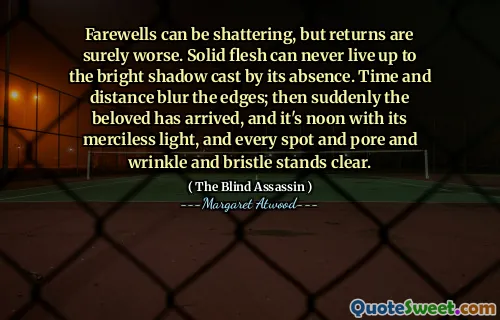After having imposed itself on us like the egomaniac it is, clamouring about its own needs, foisting upon us its own sordid and perilous desires, the body's final trick is simply to absent itself. Just when you need it, just when you could use an arm or a leg, suddenly the body has other things to do. It falters, it buckles under you; it melts away as if made of snow, leaving nothing much. Two lumps of coal, an old hat, a grin made of pebbles. The bones dry sticks, easily broken.
The quote reflects the complex relationship between the human mind and body, emphasizing how the physical form often demands attention and control. It suggests that the body can be self-centered, expressing its own desires and needs that distract from the mind’s intentions. This dynamic is portrayed as both a domineering presence and a source of discomfort, as it imposes its will while being fragile and unreliable.
In a poignant manner, the quote highlights the eventual betrayal of the body, which, when most needed, can fail us. At a critical moment, the body falters and fades, leaving behind a sense of emptiness and loss. This creates a stark contrast between the body’s robust claims and its ultimate vulnerability, evoking feelings of abandonment and fragility that resonate with the human experience.
